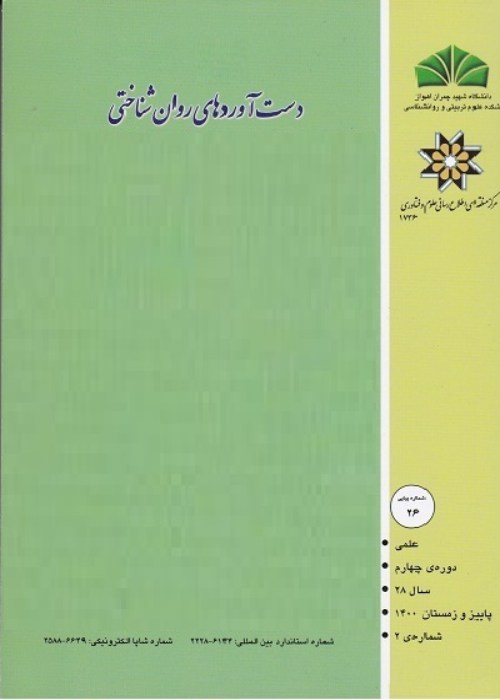Ethnographic Research of Cognitive Scaffolding in Iranian Mothers
The engagement of children in daily tasks and activities can play a major role in their cognitive development. Mothers can guide children in this process through parental scaffolding. Cognitive parental scaffolding has a cultural nature and may lead to different outcomes in children from different cultures. Nevertheless, we haven’t an exact understanding of this concept among Iranian mothers; something which was addressed in this study.
Method :
The research was conducted with a qualitative approach and ethnography method. A sample of 23 mothers with children aged 3-4 years was selected based on purposive snowball sampling. The required data were collected through non-participant observation. For this purpose, the mothers were asked to help their children solve a puzzle according to the pattern, and the mother-child interaction was video recorded without the observer’s intervention. The study setting was the home of the parents. To access the dominant maternal scaffolding pattern, the task was performed only once, with the mother being unaware of the task’s context before this single performance. The video files were transcribed and the content was analyzed in MAXQDA.
Careful observations of 23 videos of mother-child interactions while completing a puzzle led to the identification of 3,517 scaffolding-related behaviors. After duplicates were removed, there remained 1,462 instances of which 90 primary codes, 14 level-2 sub-themes, six level-1 sub-themes, and three main themes were extracted. The results showed that dimensions of cognitive scaffolding in Iranian mothers included direct support (verbal and physical), expanded support (question and instructional), and emotional support (encouragement and approval). Based on the results, direct verbal and physical assistance (direct support), non-instructional questions (expended support), and repeated verbal praise (emotional support) during the tasks are the main styles of cognitive scaffolding in Iranian mothers.
The general pattern of the parent-child relationship in Iranian families, the emphasis of Iranian parents on excessive responsibility towards their children, their expectation of children to obey them, and excessive control over the learning processing of children can well explain the findings of this study. Also, the use of direct support as a dominant pattern of scaffolding in Iranian mothers can be attributed to historical events and what has happened to Iranian society. Iran has experienced much political and economic instability in its historical life and Iranian parents always have been concerned about their children in these historical instabilities. Therefore, in such a context, the direct support of the mother is justified. The use of direct support by Iranian mothers can also be attributed to structural changes in the Iranian postmodern family. Now the average family size in Iran is three, including a father, a mother, and one child. It seems that living in single-child families, can affect parental support and facilitate direct cognitive scaffolding. The results of this study can be used in cognitive development programs for Iranian children. The task dependence of parental cognitive scaffolding is a consideration that must be taken into account when interpreting the results of this study. What was described and interpreted in this study was the maternal scaffolding during the completion of an intellectual puzzle. Future research should investigate whether or not comparable results can be obtained when performing a task other than a jigsaw puzzle.
- حق عضویت دریافتی صرف حمایت از نشریات عضو و نگهداری، تکمیل و توسعه مگیران میشود.
- پرداخت حق اشتراک و دانلود مقالات اجازه بازنشر آن در سایر رسانههای چاپی و دیجیتال را به کاربر نمیدهد.


